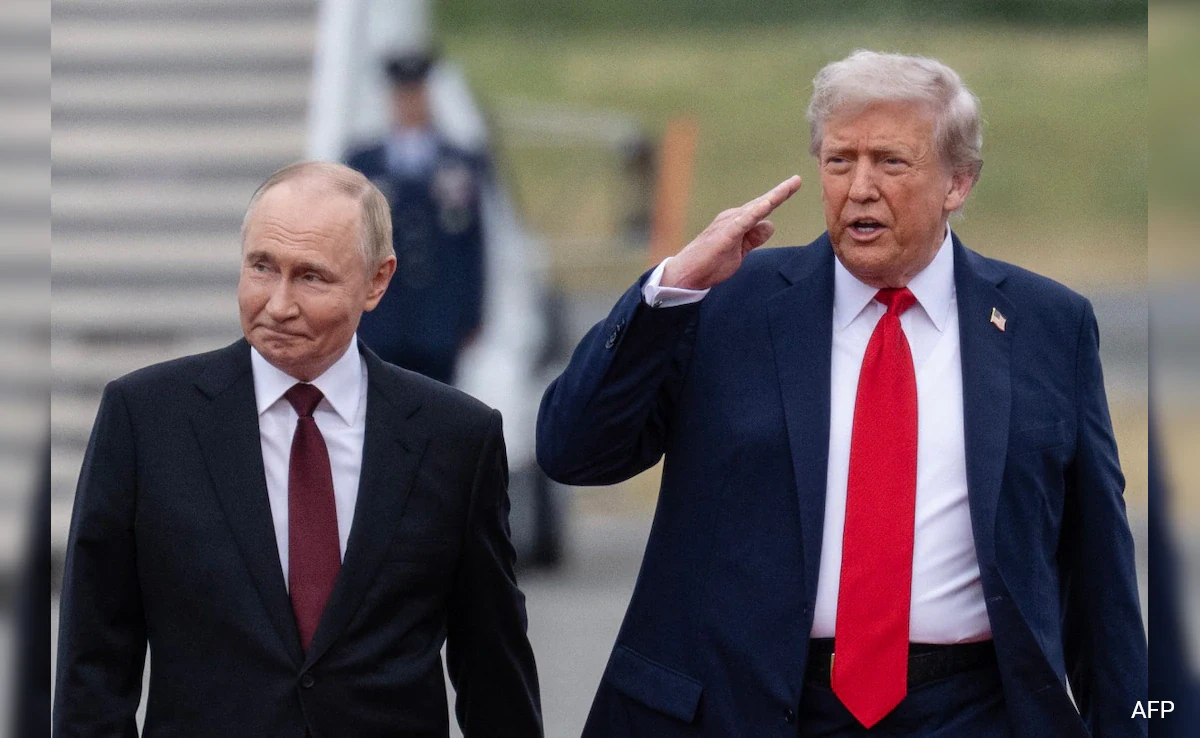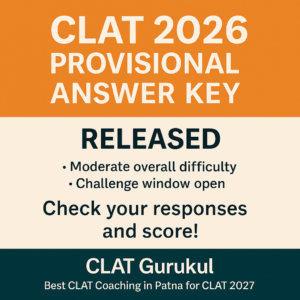
The Summit in Alaska – Trump, Putin, Zelenskyy, and the Stakes for India
GK & Current Affairs for CLAT | CLAT Current Affairs 2026
Powered by CLAT Gurukul – Best online coaching for CLAT
Introduction
International diplomacy often reaches crucial turning points during high-profile summits, where powerful leaders gather to negotiate peace, set agendas, or exert influence. The Alaska Summit, involving U.S. President Donald Trump, Russian President Vladimir Putin, and Ukrainian President Volodymyr Zelenskyy, represents such a moment. With the Ukraine war escalating, Western unity under strain, and global economic challenges mounting, the summit in Anchorage, Alaska, carries implications not just for Europe and the U.S., but also for global powers like India.
For CLAT Current Affairs 2026 preparation, this event is significant because it blends international law, geopolitics, diplomacy, sanctions, and security alliances — themes that frequently appear in legal reasoning and general knowledge sections of law entrance exams. At CLAT Gurukul, the best online coaching for CLAT, we stress that students must not only know the facts of current events but also understand their legal, historical, and global implications.
Why in News?
- Summit Scheduled: U.S. President Donald Trump will meet Russian President Vladimir Putin in Anchorage, Alaska, to discuss an end to the ongoing war in Ukraine.
- Backdrop of Crisis: The summit comes at a time when Europe faces an existential threat from Russia, the U.S.’s global credibility is under test, and Ukraine’s sovereignty is at stake.
- India’s Stakes: New Delhi is closely watching the summit as U.S. sanctions on Russia have squeezed India with higher costs of energy imports, while India also seeks to balance ties with Washington and Moscow.
- Historical Parallels: The Alaska venue draws comparisons with the Yalta Conference of 1945, where leaders of the Allied powers discussed post-World War Europe.
Thus, the summit is in the news because it may shape the future course of the Ukraine war, global security alliances, sanctions regimes, and India’s foreign policy choices.
Point-wise Summary of the Article
- The Meeting and Venue
- This is the first in-person meeting between Trump and Putin since June 2021, when Putin met then-President Joe Biden in Geneva.
- Venue: Anchorage, Alaska — symbolic, as it recalls moments in history when global leaders negotiated the fate of nations.
- Putin will be the first Russian leader to visit Alaska since the U.S. bought it from Russia in 1867 for $7.2 million.
- What Trump Wants
- Trump has long expressed dissatisfaction with NATO allies, calling them dependent on U.S. protection without contributing enough.
- He has also been critical of Putin’s invasion of Ukraine but insists negotiations are possible.
- Trump is aiming for:
- Ceasefire Agreement in Ukraine.
- Diplomatic “win” that could help his image ahead of U.S. elections.
- Highlighting U.S. leadership in conflict resolution.
- What Putin Wants
- Putin’s demands include:
- Lifting Western sanctions imposed after the invasion of Ukraine.
- Security guarantees that Ukraine will not join NATO.
- Recognition of Russia’s control over certain occupied territories in Ukraine.
- Putin is also seeking to break Western unity and force the U.S. to negotiate directly, bypassing European allies.
- Zelenskyy’s Position
- Zelenskyy, the President of Ukraine, insists:
- No compromise on Ukraine’s sovereignty.
- Any ceasefire must include a durable peace plan that Russia cannot violate.
- Ukraine will not accept losing territories currently under Russian control.
- He also seeks greater Western military support, sanctions on Russia, and accelerated NATO membership.
- European Leaders’ Stance
- France’s President Emmanuel Macron and Germany’s Chancellor Friedrich Merz have shown skepticism.
- Macron: “There was no reason for Putin to be invited unless he was serious about peace.”
- Europe insists sanctions will continue until Russia withdraws.
- India’s Concerns
- Energy Sanctions: U.S. and EU sanctions on Russian oil have raised prices. India has faced a 25% penalty on Russian imports and additional tariff hikes on Indian exports to the U.S.
- Geopolitical Balance: India has long-standing defense ties with Russia, but also strategic partnerships with the U.S. through forums like Quad.
- Desired Outcome: New Delhi hopes Trump comes out of the summit with a ‘win’, ensuring stability in global energy supplies and reducing U.S. pressure on India’s Russian ties.
Notes – Peculiar Terms Explained
- Anchorage, Alaska – U.S. state bordering Russia across the Bering Strait, historically linked to U.S.-Russia relations.
- NATO (North Atlantic Treaty Organization) – A 31-member military alliance formed in 1949 for collective defense against aggression.
- Sanctions – Economic or trade penalties imposed by one or more countries to influence a state’s behavior.
- Ceasefire – A temporary suspension of hostilities in a conflict, usually as a step toward peace talks.
- Yalta Conference (1945) – Meeting of Allied leaders (Roosevelt, Churchill, Stalin) to decide Europe’s fate after WWII.
- Quad – Quadrilateral Security Dialogue between India, U.S., Japan, and Australia to counterbalance China in the Indo-Pacific.
Legal, Political, and Geopolitical Context
- International Law and Sovereignty
- Ukraine war raises questions of violation of UN Charter’s Article 2(4) (prohibition on the use of force against territorial integrity).
- Russia’s actions are seen as breaches of international law, while Moscow claims “self-defense” and protection of Russian-speaking minorities.
- Sanctions under International Law
- Economic sanctions are legal under the UN Security Council but often imposed unilaterally by blocs like the U.S. and EU.
- Debate: Are unilateral sanctions legitimate, or do they constitute “economic coercion”?
- India’s Dilemma
- India abstained from several UN votes condemning Russia but continues buying discounted oil.
- India balances strategic autonomy: defense dependence on Russia vs alignment with U.S.-led Indo-Pacific security.
- Constitutional Relevance for CLAT
- Indian Constitution’s Directive Principles of State Policy (Article 51) urges fostering respect for international law.
- CLAT aspirants must link foreign policy choices with constitutional morality and legal obligations.
Analytical Perspective
- Trump’s Domestic Angle
- Trump seeks a “win” for domestic politics — showing leadership in peace negotiations may boost his electoral chances.
- Putin’s Strategy
- By engaging Trump, Putin aims to bypass Europe and split Western alliances.
- His insistence on sanctions relief shows Russia’s economic vulnerability.
- Zelenskyy’s Position
- He is caught between defending sovereignty and avoiding the perception of yielding territory.
- Rejecting concessions strengthens Ukraine’s diplomatic position but risks prolonging war.
- India’s Tightrope Walk
- For India, the summit’s outcome could ease sanctions and reduce energy costs.
- Failure, however, may deepen India’s challenges in balancing Washington and Moscow.
- Global Security Impact
- If successful, the summit could open a path to peace talks.
- If it collapses, it could entrench divisions, fueling another Cold War-style confrontation.
Conclusion
The Alaska Summit is not just about Ukraine but about the future of global order. Trump seeks a political win, Putin demands legitimacy and sanctions relief, and Zelenskyy defends Ukraine’s sovereignty. Meanwhile, Europe worries about credibility, and India hopes for reduced energy pressure.
For CLAT Current Affairs 2026, this case demonstrates how international diplomacy, legal principles, sanctions, and strategic interests intersect. At CLAT Gurukul, the best online coaching for CLAT, we prepare students to analyze such events not merely as news stories but as legal and political case studies.
The outcome of the Alaska Summit could either mark a turning point in the Ukraine war or deepen global divides — shaping the world in which future law aspirants will practice.
This Blog is Powered by CLAT Gurukul — India’s Leading Law Entrance Prep Platform
At CLAT Gurukul, we believe in empowering future legal minds with the right blend of knowledge, strategy, and mentorship. This blog is a reflection of our commitment to quality content that not only helps aspirants stay updated but also sharpens their conceptual clarity.
Why CLAT Gurukul?
- Personalized Mentorship by Top Legal Educators
- Comprehensive Study Materials & Legal Updates
- Daily Practice Sets, Mocks & Performance Tracking
- Result-Oriented Strategy for CLAT, AILET, and CUET
Whether you’re reading this article to deepen your understanding or to stay ahead in your exam prep — you’re already one step closer with CLAT Gurukul by your side.
Join thousands of successful aspirants who trusted CLAT Gurukul and cracked India’s top law entrance exams.
Visit https://www.youtube.com/@CLATGurukul/shorts to learn more or speak to our experts now!
Note from CLAT Gurukul
At CLAT Gurukul, we are committed to providing free CLAT study material, including CLAT current affairs, legal reasoning practice sets, general knowledge updates, logical reasoning questions, English comprehension exercises, and more — all curated by top mentors.
Our blog section is regularly updated with high-quality CLAT content tailored to match the evolving pattern of the CLAT UG exam. Whether you’re looking for CLAT 2026 current affairs, CLAT legal reasoning passages, or mock practice sets, we have you covered.
We believe in open-access learning and will continue to publish free CLAT preparation resources to help serious aspirants succeed.
Explore more free content under categories like:
Best online coaching for CLAT, CLAT current affairs, CLAT GK updates, CLAT legal updates, CLAT logical reasoning, and CLAT English preparation.
For structured learning, daily mocks, and expert mentorship, visit https://www.youtube.com/@CLATGurukul/shorts — the Best CLAT Coaching in Patna and India’s most trusted platform for CLAT online coaching.




